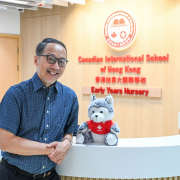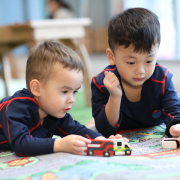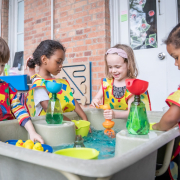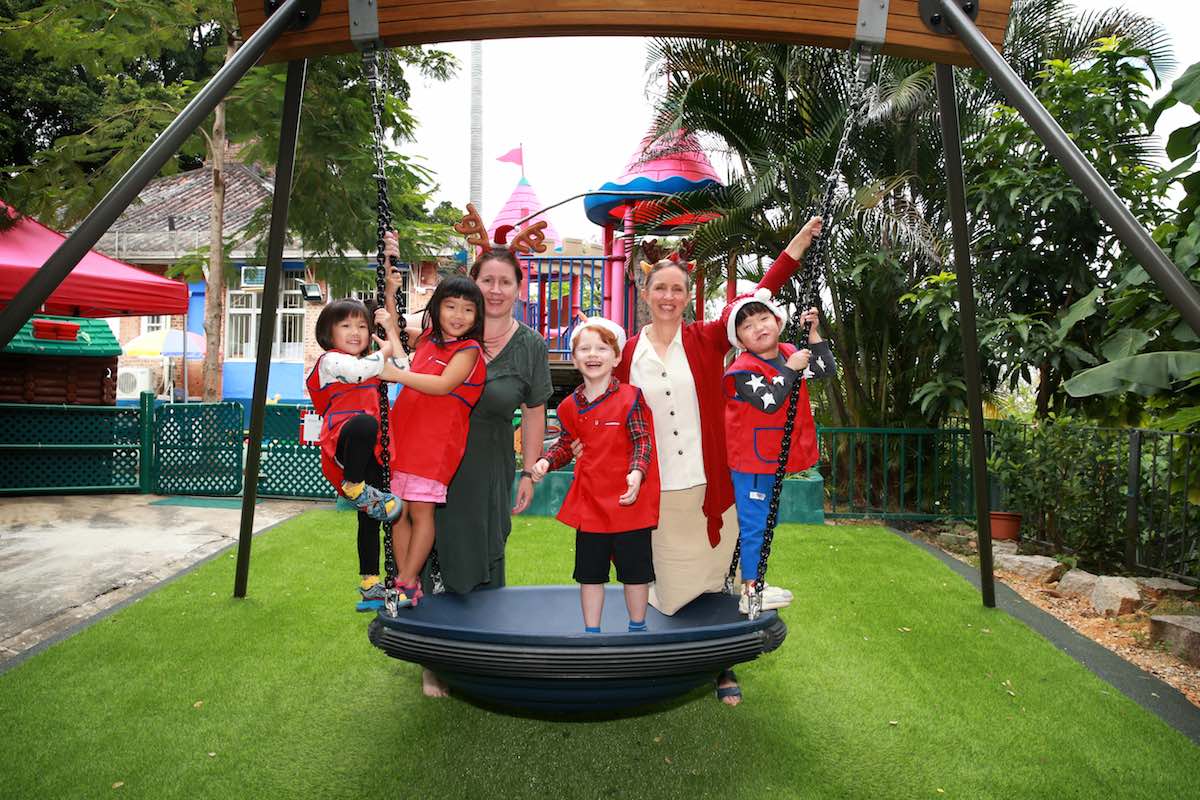
Visit Norwegian International School Kindergarten
Vice principal of NIS and head of its kindergarten campus, Lisa Husmann talks us through what the little school on the hill has to offerWith Tai Po’s multi-lane highways and busy streets a stone’s throw away, you can be forgiven for not realising that the hill on which the Norwegian International School’s (NIS) kindergarten campus is located used to overlook the sea. The heritage bungalow, where the school is now housed, was once the magistrate’s residence and he used to sail from Central to what was then Tai Po Island to sort out any pending cases. That said, the friendly kindergarten still feels as though it is on an island of sorts, enabling children to have a nurturing and engaging experience in an environment that seems a world away from all the hustle and bustle going on outside its gates.
NIS was established in 1984 to provide education for the children of Norwegian missionaries and the kindergarten was set up in 2008. It follows the International Early Curriculum (IEYC), which supports key areas of learning through holistic enquiry and play-based approaches, and teaches in English and Mandarin. Although the Norwegian language is no longer taught, the school still celebrates Norway’s National Day and its Norwegian heritage such as incorporating Viking themes in its teaching.
Set amongst large, shady trees, it is an outdoor kid’s paradise of climbing frames, swings and Wendy houses with plenty of space for running around, playing and exploring. Inside, the airy classrooms are just as chock full of enticing corners devoted to activities such as dressing up, painting and science experiments.
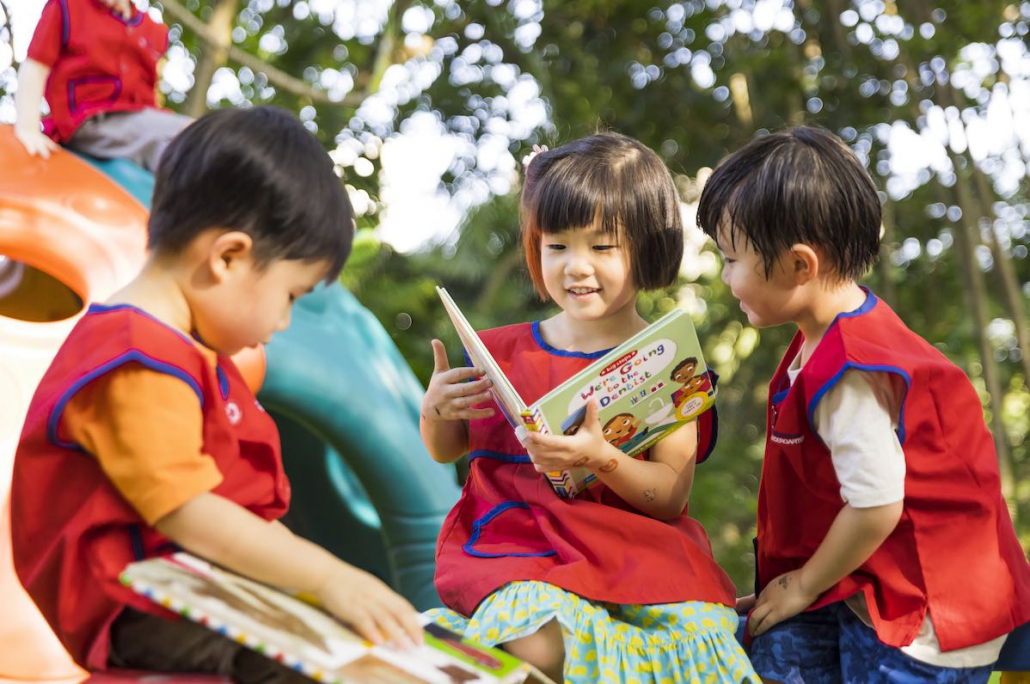
“Children are encouraged to get the most out of their environment, and are not limited to a small space within it. They get to access, explore and utilise all of it in their day-to-day learning and play,” says NIS vice principal Lisa Husmann, who also founded and heads up the kindergarten. “The children are engaged in it and are responsible for it. We love our campus and how it enables the children to learn through real, meaningful engagement with the natural world.”
Both indoor and outdoor facilities are designed to be flexible and adaptable. An indoor STEM wall, for example, allows little fingers to play safely with cogs, chains and tubes and simultaneously think about how different elements can work together.
“Our experience is that families looking for international schools are looking for an environment where their children can develop independent thought and creative problem solving, where their curiosity is fostered, rather than having to conform,” explains Husmann, who came to Hong Kong as a university lecturer in environmental science and has a PhD in environmental education. “One of the key aspects of NIS that develops these attributes in children is that we’re genuinely child-led. True enquiry-based learning is initiated through the child’s choices, and teachers are there to facilitate what the children want to explore. This is a very hands-on, interactive style of learning.”
Husmann has drawn on her experience and knowledge of schools elsewhere in the world, early childhood theory and modern understandings of brain development to put together this programme of learning. Children are encouraged to ask questions and to feel supported to speak up when they don’t understand. Nor do teachers necessarily step in and solve their problems for them. Rather, they try to help the children by giving them space and the time to figure things out on their own. If they are unable to do so, the teachers ask them to bring in a friend and see if two heads are better than one. This includes issues related to behaviour as well as academics.
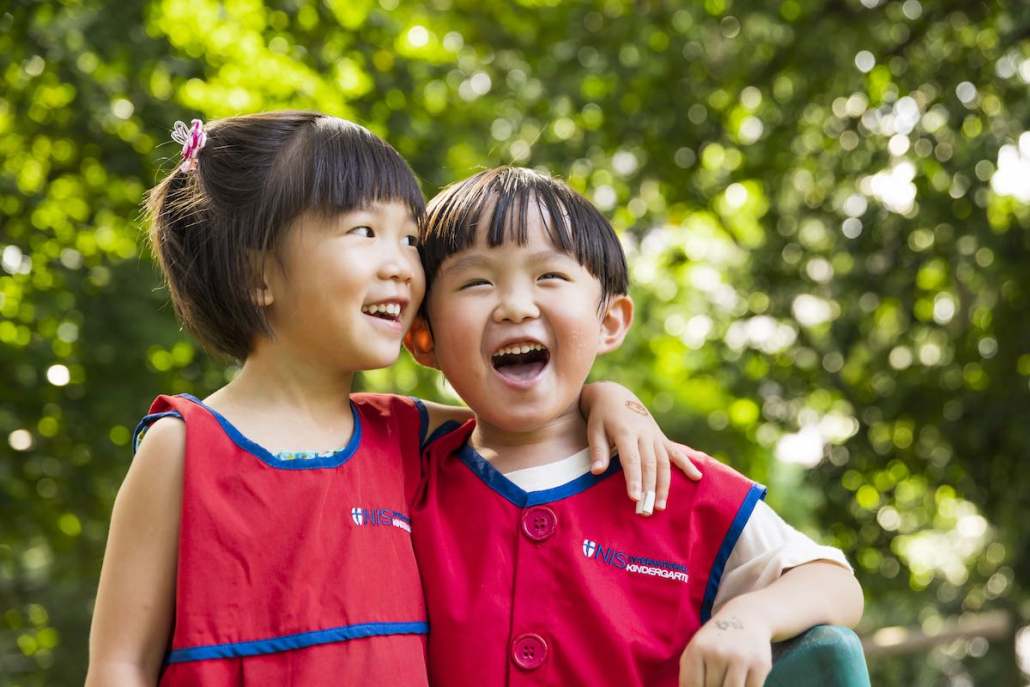
Read more: Festive winter camps for kids 2021
“It’s important for children to learn in a guided way how to make up between themselves when they are upset with each other, and to develop social skills that help them build healthy relationships,” says Husmann. “This approach takes a lot of time and individual teaching, with every child coming at this from a different place. It’s worth it because it raises children who can work through a challenge – whether that’s a personal, academic or social one. Kids in Hong Kong don’t often get those opportunities because somebody usually steps in and does the task for them.”
Christianity is an intrinsic part of NIS, which also follows the Biblical Foundations Curriculum. The children learn about stories from the Bible during daily praise time and sing songs based on Bible verses. Whether the children come from a Christian family or not, Husmann believes that the sense of Christian love is a foundation that expands the world of any child and gives them a sense of belonging, purpose and of being loved and accepted.
“We believe that these are foundational things that every child should have the chance to experience, and which will support them as they grow on their learning journey in years to come,” she says. “Believing that each child is made unique and special by God, we celebrate our differences and learn from each other’s diverse experiences.”
The school’s nurturing environment has been crucial for the children as they rebound from the unusual challenges they have experienced over the past couple of years due to the pandemic. During the school’s closure, the teachers implemented a new online learning platform from New Zealand specifically developed for the engagement of young children and their families. The relationship between NIS and its families had always been strong before the pandemic but the online platform allowed everyone to interact even more.
“During the periods where we couldn’t be on campus together, we made a lot of engaging and fun learning videos and would follow the regular school routines so the children would keep familiar with them,” says Husmann. “The kids would say ‘We love watching NIS TV’.”
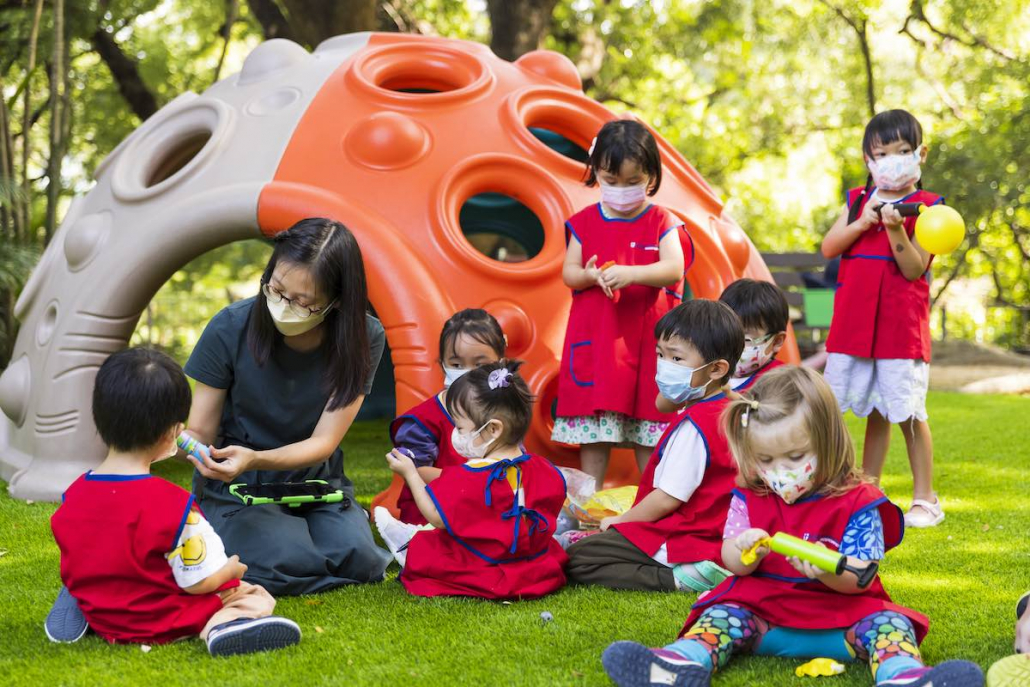
Husmann and her colleagues have observed that over the course of the pandemic, a lot of Hong Kong children haven’t developed many of the skills they would usually have at their age. However, she is confident that NIS’ learning environment in which the children can socialise, interact and explore, often outdoors in the fresh air, will help them to become resilient and confident.
“The kindergarten years are a window of opportunity where important developments in socialisation, critical thinking and love of learning are built. If we can provide a strong positive foundation in those years, then we set them up for doing well in life beyond,” she says. “We do everything that we know is best to provide that foundation for the rest of their lives.”
There is a lot of interaction between NIS’ kindergarten and primary campuses, which work hard to promote a sense of the wider NIS community. All the kindergarten students have priority interviews for admission into NIS’ primary section, well in advance of external applicants, and those with older siblings already attending the primary campus are given additional priority.
Says Husmann, “I often run into high school kids I once taught at NIS when they were much younger who come up to me and give me a hug. I love that continuity of being part of a community. At NIS, there’s a strong focus on social-emotional skills, developing well-balanced, well-rounded children who approach learning with curiosity and joy.”
Norwegian International School Kindergarten, 175 Kwong Fuk Road, Tai Po, 2638 0269. kinder@nis.edu.hk; nis.edu.hk


